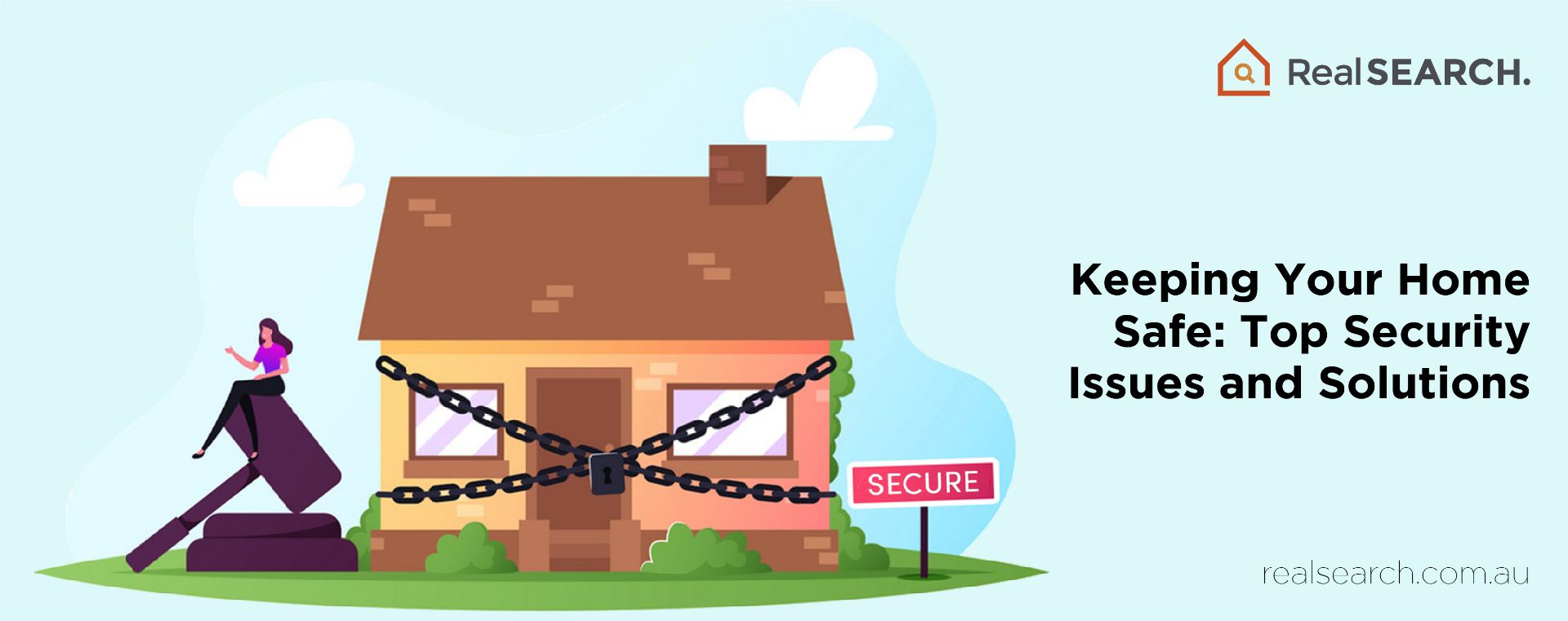
When it comes to your home, safety should be a top priority. Your home should be a sanctuary where you and your family can feel secure. In this article, we'll explore the top security issues that homeowners face and provide practical solutions to address them. Let's dive in!
1. Safeguard Your WiFi
In our increasingly connected world, securing your WiFi network is crucial. Unprotected WiFi can leave your home vulnerable to cyberattacks. To protect your WiFi:
- Change your default router login credentials.
- Use a strong and unique password for your WiFi network.
- Enable WPA3 encryption for better security.
- Regularly update your router's firmware to fix vulnerabilities.
By taking these steps, you can ensure that your internet connection is not a weak point in your home security.
2. Stay Updated: Your Router Matters
Your router is the gateway to your home network. Outdated routers can have security flaws that hackers can exploit. To keep your network secure:
- Check for firmware updates regularly.
- Consider upgrading to a newer router model with enhanced security features.
- Enable the firewall on your router for an added layer of protection.
A modern and well-maintained router is essential for a secure home network.
3. Fortify Doors and Windows
Physical security is just as important as digital security. Make sure your doors and windows are robustly protected:
- Install deadbolts on exterior doors.
- Use security film on windows to make them shatter-resistant.
- Reinforce door frames with strike plates.
- Consider smart locks for added convenience and security.
By strengthening your home's physical barriers, you reduce the risk of break-ins.
4. Conceal Your Spare Key Wisely
Hiding a spare key can be a convenient backup plan, but it can also be a security risk if not done right:
- Avoid obvious hiding spots like under doormats or flower pots.
- Use a secure lockbox with a combination code for key storage.
- Share spare keys only with trusted neighbors or family members.
Don't make it easy for potential intruders to find your hidden key.
5. Choose Secure Products
When purchasing home security products, prioritize quality and reliability:
- Invest in security cameras with high-resolution video and cloud storage.
- Consider smart doorbells with motion sensors and two-way communication.
- Install a monitored home security system for professional monitoring.
Quality products provide peace of mind and can deter potential threats.
6. Create Strong Passphrases
Passwords are your first line of defense against cyberattacks. Create strong and unique passphrases for all your online accounts:
- Use a mix of uppercase and lowercase letters, numbers, and symbols.
- Avoid using easily guessable information like birthdays or names.
- Consider using a reputable password manager to generate and store passwords securely.
Strong passphrases make it difficult for hackers to access your accounts.
7. Shed Light on Security
Proper lighting around your home can deter potential intruders. Install motion-activated lights:
- Place them near entry points, pathways, and dark corners.
- Adjust sensitivity settings to avoid false alarms.
- Use energy-efficient LED bulbs to save on electricity costs.
Well-lit areas make your property less appealing to would-be thieves.
8. Embrace Home Automation
Modern technology offers numerous ways to enhance your home security:
- Install a smart security system that allows remote monitoring and control.
- Use smart plugs and timers to simulate your presence when you're away.
- Connect your lights and locks to a home automation hub for centralized control.
Automation can provide convenience and an extra layer of security.
In conclusion, safeguarding your home is a multi-faceted endeavor. By addressing both digital and physical security concerns, you can create a safe haven for you and your family. Remember, your home's security matters, and taking proactive steps can make a significant difference. For more insights on real estate and property security, explore RealSearch.com.au
